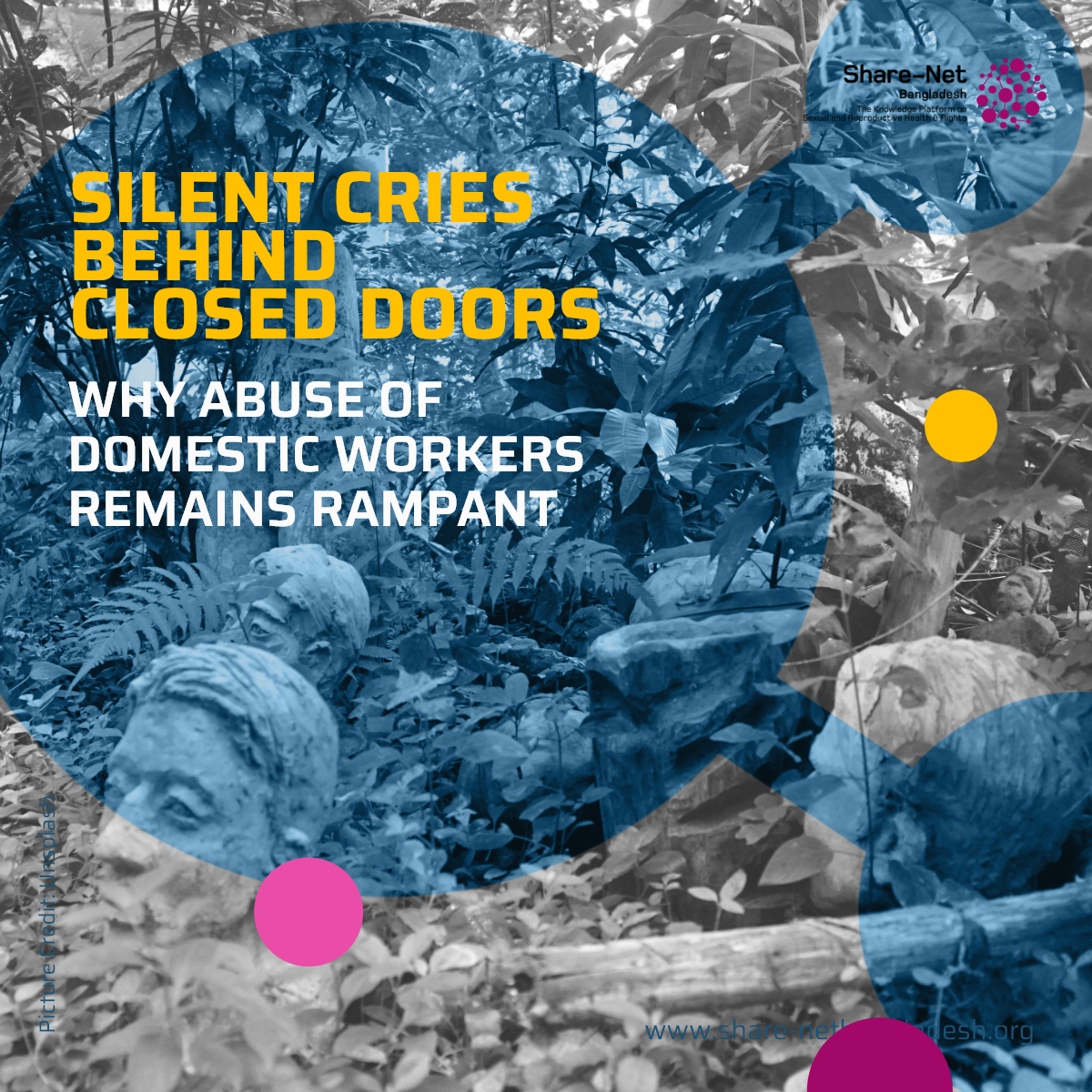Silent Cries Behind Closed Doors: Why Abuse of Domestic Workers Remains Rampant
The harrowing case of Kalpana, a 13-year-old domestic worker from Dhaka, brutally tortured in a wealthy household, has sparked outrage and shed light on the long-standing issue of abuse faced by domestic workers in Bangladesh. Despite existing policies, physical and sexual abuse of domestic workers remains rampant, revealing deep-rooted societal imbalances and failures in legal protections.
In Kalpana’s case, police found her with missing teeth, burns, and bruises, a tragic reflection of how vulnerable domestic workers are to exploitation and violence. Dinat Jahan Ador, a resident of the household, was arrested, but this incident is far from isolated. Data from Ain o Salish Kendra (ASK) shows that 36 domestic workers have died in Bangladesh in the past three years, 90% of which were results of torture. In the same period, over 450 domestic workers faced abuse, yet only a fraction of cases led to legal action.
Power Imbalance and Vulnerability
Domestic workers, often young girls from impoverished backgrounds, are frequently viewed as “soft targets.” With little legal, physical, or social power, they become easy prey for abusers. Nur Khan Liton, a prominent human rights activist, explains, “Without proper legal recourse, domestic workers are left defenseless. They endure torture because they lack the means to fight back.”
This vulnerability is magnified by poverty and social inequality. Domestic workers are often economically dependent on their employers, making it difficult to report abuse or seek justice. Employers, in turn, exploit this dependency, knowing the victims’ reluctance to pursue legal action.
A Bangladesh Institute of Labour Studies (BILS) study revealed that 50% of domestic workers experienced physical or mental abuse, with most victims being women and children. Shockingly, 96% of workers did not report their abuse, accepting it as part of their everyday life. This silence perpetuates the cycle of exploitation.
Lack of Legal Protection
Although Bangladesh introduced a policy in 2015 to protect the rights of domestic workers, including prohibiting physical and mental punishment, the law remains poorly enforced. Dr. Kamal Uddin Ahmed of the National Human Rights Commission emphasised the need for stronger legislation, stating, “We need laws that can adequately protect domestic workers from abuse. Without enforcement, these policies mean little.”
Despite existing provisions, domestic workers are not formally recognised under the 2023 Labour Act, which excludes them from accessing the protections afforded to other sectors. Without proper registration and monitoring systems, perpetrators often evade justice, with cases being settled informally through financial compensation rather than criminal prosecution.
The Intersection of Gender and Abuse
Domestic workers, most of whom are women, are often subjected to abuse that goes beyond physical violence. Sexual abuse is an alarming issue within this context, as young girls working in households face the risk of sexual exploitation from male employers or household members. According to a study by Action for Social Development, nearly 1.7% of child domestic workers in Dhaka reported facing sexual assault.
The abuse of domestic workers is a reflection of broader societal issues related to sexual and reproductive health and rights (SRHR). The lack of awareness and enforcement of sexual rights, combined with a culture of silence around sexual abuse, leaves many workers unable to assert their rights or seek protection.
Breaking the Cycle
The abuse of domestic workers, such as the case of Kalpana, points to a system that fails to protect the most vulnerable. As Shahana Huda Ranjana, a human rights activist, noted, “Domestic workers are seen as disposable, stripped of their fundamental human rights. We need systemic changes to stop this exploitation.”
For Bangladesh to address this issue, it is essential to enforce existing laws, ensure the registration and monitoring of domestic workers, and, most importantly, shift societal attitudes toward these workers, recognising their rights to safety, dignity, and justice. Without these changes, the cycle of abuse will continue to haunt the lives of countless domestic workers, like Kalpana.
Source: The Business Standard
Picture Credit: Beth Macdonald/Unsplash

